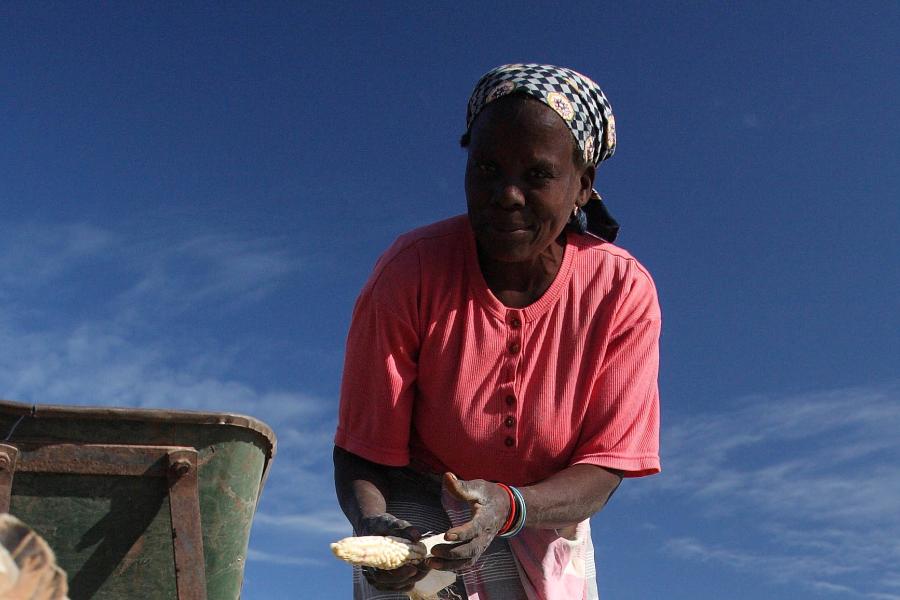How focus groups can help explore the ‘why’ in gender and livestock

New videos demonstrate how focus groups can shed light on gender dynamics in livestock farming
By Vanessa Meadu
A new set of videos demonstrates how to hold structured focus group discussions in the context of gender and livestock development. These offer practical guidance for any individual or organisation collecting evidence on the linkages between gender, livestock and livelihoods. The videos were developed for the Livestock Data for Decisions (LD4D) network by SEBI-Livestock and the SheVax+ project. SheVax+ is part of IDRC’s Livestock Vaccine Innovation Fund’s cohort of Gender and Veterinary Vaccine projects.
Why use a focus group for research?
We need good data to understand how gender dynamics play out in livestock farming in low-and middle-income countries (LMICs), where gender norms can influence who in the household performs which chores and who makes the financial decisions or enjoys the benefits that livestock bring. While surveys can help track women’s involvement in different activities, and subsequent changes in productivity, animal health, income and education, they can still leave questions as to why certain changes have occurred. They may also fail to identify any unintended consequences. Focus groups are a well-established tool in social science, political science, and business to probe for information that cannot be captured by quantitative surveys. They are increasingly used to assess and improve the impact from agricultural development investments in LMICs.
Who should use this?
The videos were developed to support livestock data practitioners, such as monitoring, evaluation and learning officers or program designers, who wish to better understand gender dynamics. This understanding can help improve women’s empowerment, required to achieve better child nutrition, household food security and quality of life for all members of the household. Members of the LD4D Gender & Livestock Data Community of Practice have been looking for tools to support qualitative research, and these videos offer practical guidance for setting up and running a focus group.
What do they show?
The set of six videos demonstrate a fictional focus group discussion among different men and women working in Kenya’s livestock sector. While focus group discussions with farmers are usually sex-disaggregated, the demonstration shows a mixed sex group, including professional women who are accustomed to participating in public discussions and sharing their views.
This model focus group features discussions among stakeholders including national and international researchers, district veterinarians and local officials. Together they explore questions on the benefits to men and women of raising different species of livestock, the importance of livestock health, the distribution of livestock related chores, earning income through livestock, and making decisions about the use of that income.
The videos demonstrate key steps such as obtaining informed consent, how to be inclusive, staying focused, preventing a powerful individual from dominating, and keeping to time.
The demonstration was performed by SheVax+ project team and volunteers from the University of Nairobi School of Veterinary Medicine.
How to use the videos
You can adapt this approach to help you gain insights on different aspects of gender in your livestock projects. Qualitative methods can be combined with quantitative methods in different ways, depending on what information you are seeking. For example, they can be used at the start of your project to learn more about the community you are working with, what their norms and values are, and therefore, what may be important for you to address and monitor in your project. Alternatively, qualitative methods can be used to understand trends emerging from quantitative data, informing you of underlying reasons, project contributions to observed changes, or unintended outcomes.
Learn more
- Watch the demo videos: How to hold a focus group discussion to understand the value of women in livestock
- Discover the LD4D Gender & Livestock Data Community of Practice
- Explore Gender resources on Livestockdata.org
- Learn more about SheVax+
- Learn more about the Livestock Vaccine Innovation Fund (LVIF)
Vanessa Meadu is Communications and Knowledge Exchange Specialist with SEBI-Livestock. SEBI-Livestock convenes the LD4D Network.


